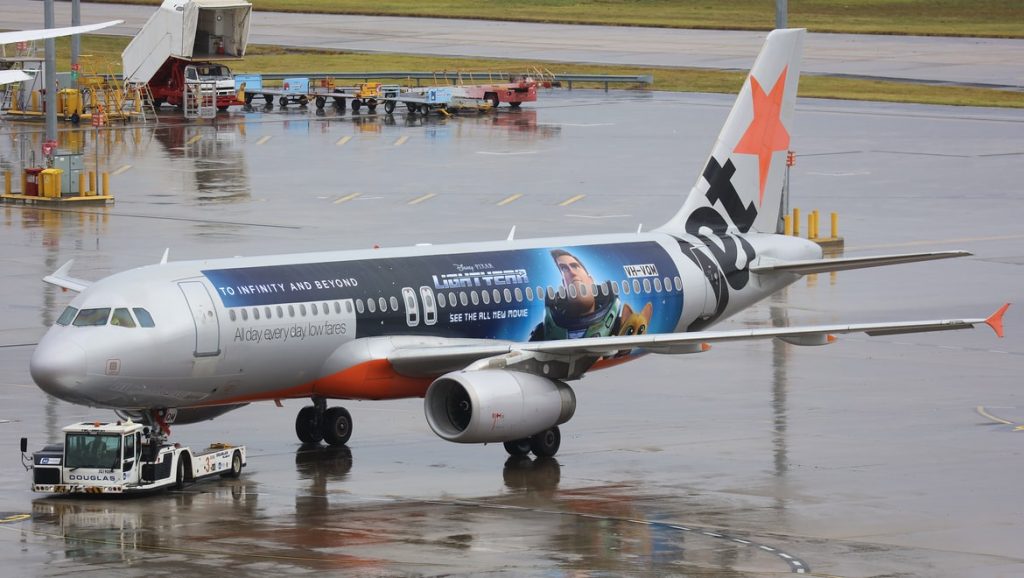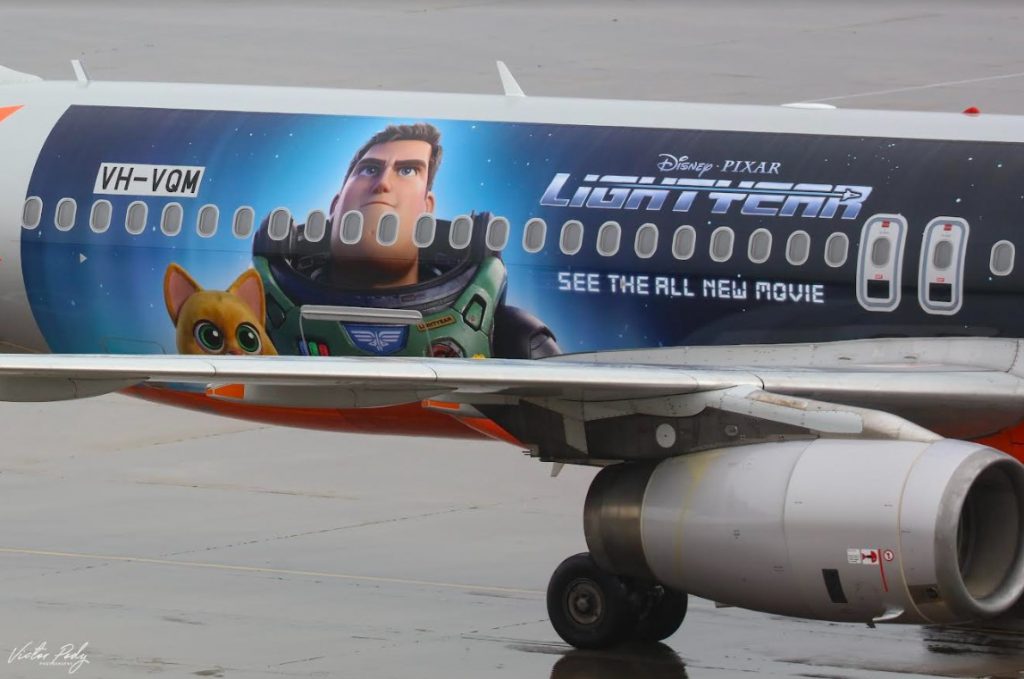
Australian Aviation photographer Victor Pody has snapped this Jetstar A320-200 sporting a special livery to advertise the new Buzz Lightyear movie.
The 16-year-old narrowbody, VH-VQM (MSN 2608) usually flies up to six times a day between Sydney and Melbourne, but was spotted on Thursday at a hangar with the unique promotion.
The spin-off movie follows the character of Buzz Lightyear from Toy Story, voiced by Captain America’s Chris Evans rather than the original’s Tim Allen. It has received hugely mixed reviews.
It comes after Jetstar in May released first-look images of a new A321neo livery to celebrate the airline’s 18th birthday and the delivery of more A321 aircraft to join its fleet.
The new paintwork retains the iconic Jetstar orange underbelly and wingtips, however now sees the colour extend onto the aircraft’s tail.
The additional A321 jets, meanwhile, will also boast wider seats than Jetstar’s existing narrowbody fleet, more overhead storage space, flip-down smartphone and tablet cradles, USB charging ports, and 50 per cent quieter engines.
Jetstar said the paint used on its new A321LRs is longer-lasting and reduces paint weight by up to 30 per cent compared to its predecessors. This will result in fuel savings of up to 108 tonnes per year across the fleet and a reduction in CO2 emissions by nearly 350 tonnes per year.
Jetstar was established as a low-cost subsidiary of Qantas in 2003 as a response to the entry of low-cost carrier Virgin Blue to the market. Jetstar took to the skies for the first time on 25 May 2004, with its inaugural flight from Newcastle to Melbourne Tullamarine.
In June, Australian Aviation reported that Jetstar owner Qantas reclaimed the lion’s share of the domestic passenger market from rival Virgin — but again failed to clinch its coveted 70 per cent share together with its subsidiary brand.
According to the ACCC’s latest Airline Competition in Australia report, Qantas carried 37 per cent of all domestic passengers in April, taking the leading place from Virgin, which captured 31 per cent.
It comes after Virgin claimed victory over its rivals in January by securing 33 per cent share of all domestic passengers, while Jetstar and Qantas each secured a 31 per cent share.
In April, Jetstar lost part of this market share to full-service parent airline Qantas, with its own falling to 28 per cent.
This means the broader Qantas Group saw a total share of 65 per cent for the month, slightly higher than the 62 per cent seen in January, but still below its long-held target of 70 per cent.
Meanwhile, Rex again remained steady in April with its 4 per cent share.
Qantas CEO Alan Joyce has repeatedly suggested that Qantas will secure “at least” a 70 per cent share of the domestic market, despite Virgin’s stronger-than-anticipated recovery from the pandemic and voluntary administration process.
















